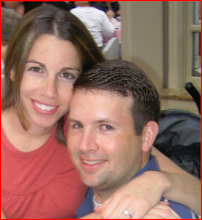In most cases heirs are present and will receive the property as follows:
Property owned jointly by husband and wife, known as tenancy in common, is automatically owned by the survivor. Separately owned assets are distributed according to the below table. (taken from New Jersey State website...http://www.judiciary.state.nj.us/)
 If You Die Leaving: Wife or Husband and Child or Children (also of Survivor) Or their Descendants
If You Die Leaving: Wife or Husband and Child or Children (also of Survivor) Or their Descendants- Wife or Husband receives $50,000 plus one-half of balance
- Child or Children receive one-half of balance divided equally
- Grandchildren take their deceased parent's share unless all children be deceased, then all grandchildren share equally.
- Wife or Husband and Child or Children (one or more not Child of Survivor) or their Descendants
- Wife or Husband receives one-half
- Child receives one-half or Children receive one-half divided equally
- Grandchildren take their deceased parent's share unless all children be deceased, then all grandchildren share equally.
If You Die Leaving: Wife or Husband but No Children or Their Descendants and
(a) If your Mother or Father survives
- Wife or Husband receives $50,000 plus one-half of balance
- Mother and Father, or survivor, receives other one-half of balance
- Wife or Husband receives all.
- Child or Children receive all divided equally
- Grandchildren take their deceased parent's share unless all children be deceased, then all grandchildren share equally.
(a) If your Mother or Father survives
- Mother and Father, or survivor, receives all
- Brothers and Sisters receive all divided equally
- Nieces and Nephews take their deceased parent's share unless all brothers and sisters be deceased, then all Nieces and Nephews share equally.
More Remote Cases (under this classification) are Not Covered Here
However, the State of New Jersey takes your property if you leave no wife or husband; child or its descendants; parent; brother or sister of their descendants; grandparent; or uncle or aunt or their children; or their grandchildren.
NOTE: Any person who fails to survive the decedent by 120 hours is deemed to have predeceased the decedent for purposes in intestate succession.
Additionally, when there is no will to name an executor, the court will appoint an administrator to oversee that the Statutes governing Decedent's Estates is followed. This administrator can be any close relative but can also be a bank if all other heirs renounce their right. The county surrogate will grant letters of administration to the individual or bank showing the authority to act.
If a minor has interest in a parent's land and chooses to sell or dispose of it a guardian must be appointed by the court. The guardian will then be able to sign on behalf of the minor any deed or paper work involved in the transaction. Also any inherited monies the minor will get can be used for support or education of the guardian gets permission and approval from the courts.
For more information about New Jersey Probate go here
